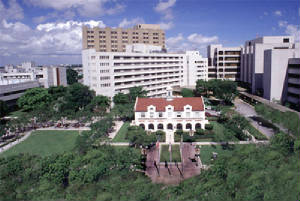|
The National Institute of Health, The Touch Research Institute at the Miami School of Medicine,
Brown University, The Canadian Touch Research Center, The American Massage Therapy Association, Hospitals and many other independent
researchers have published studies on the significant benefits of receiving touch.
Touch Research Institute:

The following is an abbreviation from The Touch Research Institute website.
AGGRESSION:
lower anxiety levels.
ADDICTIONS: cocaine and exposed HIV newborns had fewer postnatal complications, showed increased
weight gain and less stress behaviors.
ANOREXIA: reduced anxiety and depressed mood.
ASTHMA: decreased autoimmune
problems, increased peak airflow, improved pulmonary function, less anxious, reduced stress, children and parents’ anxiety
decreased.
ARTHRITIS: mild to moderate Juvenile Rheumatoid Arthritis pain decreased in both incidence and severity, less
morning stiffness, less anxiety and stress.
ATTENTION DEFICIT HYPERACTIVITY DISORDER: teachers observed less fidgeting,
less hyperactivity, more time on task behavior and children felt happier.
AUTISTIC: touch sensitivity, attention to sounds
and off- task classroom behavior decreased, relatedness to teachers and social relatedness behavior during play increased,
and they had fewer sleep problems.
BACK PAIN: lessened lower back pain, depression and anxiety and improved sleep, improved
serotonin and dopamine levels.
BEHAVIOR PROBLEMS: children had more on-task behavior, less solitary play and less aggression.
BULIMIA: improved body image, decreased depression, anxiety and stress levels, and increased dopamine and serotonin
levels.
BREAST CANCER: reduced anxiety and depression and improved immune function, including natural killer cell numbers.
BURNS: touch was given to body parts that were not affected, reduced distress during burn treatments (skin brushing)
reduced: itching, pain, depression, anger, anxiety and improved mood immediately.
CANCER: Pediatric Oncology patients
experienced less distress about pain associated with medical procedures and chemotherapy, less tactile defensive and
less depressed, and both parents and children were less anxious.
CEREBRAL PALSY: reduced spasticity, gain more muscle
flexibility, motor function and more positive social interaction.
CYSTIC FIBROSIS: less anxious, mood and peak airflow
readings improved.
DEPRESSION: children and adolescents hospitalized for depression or adjustment disorder self reported
less depression, decreased anxiety like behavior, and had lower anxiety levels based on behavior observation.
DEPRESSED
TEENAGE MOTHERS: were less depressed, less anxious, by own report and on behavior observations, stress levels were lower and
serotonin levels were higher.
DERMATITIS: affect and activity levels improved, skin condition improved including less
redness, lichenification, excoriation, and pruritis. Parent's anxiety also decreased.
DIABETES: children's glucose levels
decreased to the normal range, increased dietary compliance, parents’ and children’s anxiety and depression levels
decreased.
DOWN SYNDROME: Infants improved in muscle tone and in performance on motor tasks.
ELDERLY RETIRED
VOLUNTEERS…EFFECTS WERE STRONGER GIVING MASSAGE THAN RECEIVING MASSAGE: they reported less anxiety and fewer depressive
symptoms and an improved mood after giving touch, pulse decreased, cortisol (stress) levels decreased, self-esteem increased,
and life style improved.
HIV IN ADOLESCENTS an increase in Natural Killer Cells (number and activity) CD4 cells and
CD4/CD8 ratio increased.
HOSPITALIZED PATIENTS: Children in hospitals were found to be touched deprived.
IMMUNE SYSTEM:
enhanced immune function e.g., increased natural killer cells in HIV and in cancer suggesting positive effects on the immune
system.
LEARNING DISABILITIES: enhanced alertness and performance.
LEUKEMIA: depressed mood decreased, all blood count
measures improved, including white blood cell count, platelet count, red blood cell count and hemoglobin level.
LOW BIRTH
WEIGHT: pre-term newborns gained 47% more weight, became more socially responsive, greater increase in vagal tone, and increase
in insulin (food absorption hormone).
MULTIPLE SCLEROSIS: decreased anxiety and depressed mood, improved self-esteem,
body image, and social functioning.
PAIN: less pain in fibromyalgia, Juvenile Arthritis.
|
